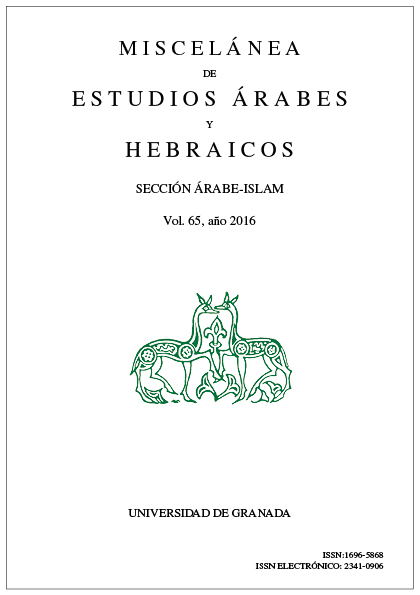Belongings and rewards of singing girls in the medieval Arab world through the pages of the Kitāb al-aghānī
Keywords:
Qiyān, Singing slave girls, Remuneration of singing girls, Kitāb al-aghānīAbstract
The singing girls of the medieval Arab world —commonly referred to as qiyān, mughanniyāt or jawārī mughanniyāt— are figures of artistic, anthropological and social interest. Despite the fact that most of them were slaves, they were able to enjoy certain material privileges, as shown in the Kitāb al-aghānī, the celebrated anthology of songs, poems and anecdotes created by Abū l-Faraj al-Iṣfahānī in the 4th/10th century.
Downloads
Downloads
Published
How to Cite
Issue
Section
License
The authors publishing their work in this journal agree to the following terms and conditions:
1. The authors retain the copyright and give the journal the right to be the first publication of the work and also to be licensee under a Creative Commons Attribution License which allows others to share the work, provided the author of the work and the initial publication in this journal are acknowledged.
2. Authors may make additional agreements separately for the non-exclusive distribution of the version of the work published in the journal (for example, putting it in an institutional repository or publishing it in a book), with acknowledgement of its initial publication in this journal.
3. Authors are allowed and encouraged to electronically disseminate (for example, in institutional repositories or on their own web page) the published version of their works (publisher's post-print version) or, if not possible, the author's reviewed and accepted post-print version. This is to facilitate productive exchanges, and allow for earlier and greater citation by third parties of the published works (See The Effect of Open Access).
4. The journal accepts no responsibility for the opinions expressed by the authors.















